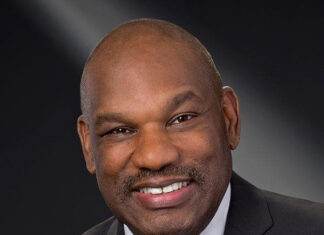
By Glenn Ellis
(Trice Edney Wire) – I recently saw a statement on social media from a medical school professor, boasting that women and applicants of color were up for consideration for admission to medical at their institution. Let’s not think that an increase in qualified non-white applicants at one school for this year means that we’ve even began to scratch the surface on the institutional racism in medical education.
I’m not going to take the time and challenge the definition of “applicants of color”. Afterall, nothing can be more misleading than this term in my opinion. By definition, this term applies to any person who is not “white’. Now, you and I both know this covers a lot of ground in the today’s world.in fact, unlike the term, colored, which was used to refer to black people (typically in an offensive manner), people of color is used to refer to anyone who is non-European.
Now you may ask, what does this have to do with black doctors, and why is it important what color a doctor is anyway.
First let’s look at why Black doctors matter: For decades, the research community, including a study in the Annals of Family Medicine in 2008, unanimously agrees that health outcomes are affected in a positive way when patients see themselves in the doctors from whom they receive their healthcare.
The study in the Annals of Family Medicine states, “The physician-patient relationship is strengthened when patients see themselves as similar to their physicians in personal beliefs, values, and communication. Perceived personal similarity is associated with higher ratings of trust, satisfaction, and intention to adhere.”
Translation: people are shown to be healthier and adhere to their treatment plan if they are treated by a doctor of the same, or similar, ethnic or racial background.
Sure, all doctors are trained well and are capable of providing care, but the evidence shows that some patients fare better in terms of health outcomes if there is racial concordance. In other words, if their doctor looks like them.
What we know is that there are approximately 1.1 million doctors in the United States, and only 30,000 are black, according to the National Medical Association, which is the voice of the black doctors. According to some reports almost half of the black doctors in this country are at, or near, retirement age.
Sure, I applaud the good news that at least 1 medical school is seeing an increase in qualified non-white applicants of color. But in order to keep that news in perspective, we must keep in mind that the Association of American Medical Colleges (AAMC) reports that African American or Black applicants have a lower acceptance rate of actual admission. AAMC says that as of 2015, medical school graduates comprise 5.7 percent Black or African-Americans and 4.6 percent Hispanic or Latinos, while whites make up almost 50%!
Since I’m giving you some of the facts from the data, here’s a couple of more points to consider: The most recent figures show that of the close to 50,000 total medical school graduates, a little over 2,000 are black. These black doctors are also more than 3 times likely to be the doctors that practice in underserved communities like the you and I, or the people we love reside in.
Not only are there not enough black medical students and black doctors, there are also a dearth of black doctors on faculty at medical schools. AAMC also finds that out of more than 100,000 medical school faculty, barely 4,000 are black. A friend of mine, who is a retired medical school faculty member at a large, prestigious medical school opened my eyes to the severity of the faculty diversity. He told me that during his 30+-year career on faculty, there were only 3 blacks! This is at one of the top medical schools in America, what must it be like at other places?
Minorities. Nonwhites. People of color. How did we get here? Seems like not too long ago, the measurement of diversity in education was based on the number of African Americans. Through some kind of slippery slope, this has moved to a point where Asians, East Indians, Africans, Pacific Islanders, Middle Easterners; Latinos; and a plethora of others, now can claim the moniker of people of color. This means that is has become increasingly difficult to determine whether there is any measurable progress in the number of black doctors.
All this does not imply that the situation is hopeless. Solutions begin with political and societal will. We must decide what type of society we want to be. We have to decide if the inequities in education, income, and other crucial social indicators are inherent rights of everyone; particularly African Americans, who have been historically marginalized and disadvantaged.
We must provide the supports and interventions for the improvement of the pipeline of future black doctors. We must decide that the end of health inequities and disparities that are attributed to institutional racism is non-negotiable. Finally, we must no longer tolerate the 100,000 black deaths annually, estimated by Institute of Medicine (IOM) is unacceptable.
So, you see, Black doctors matter. Remember, I’m not a doctor. I just sound like one. Take good care of yourself and live the best life possible!



